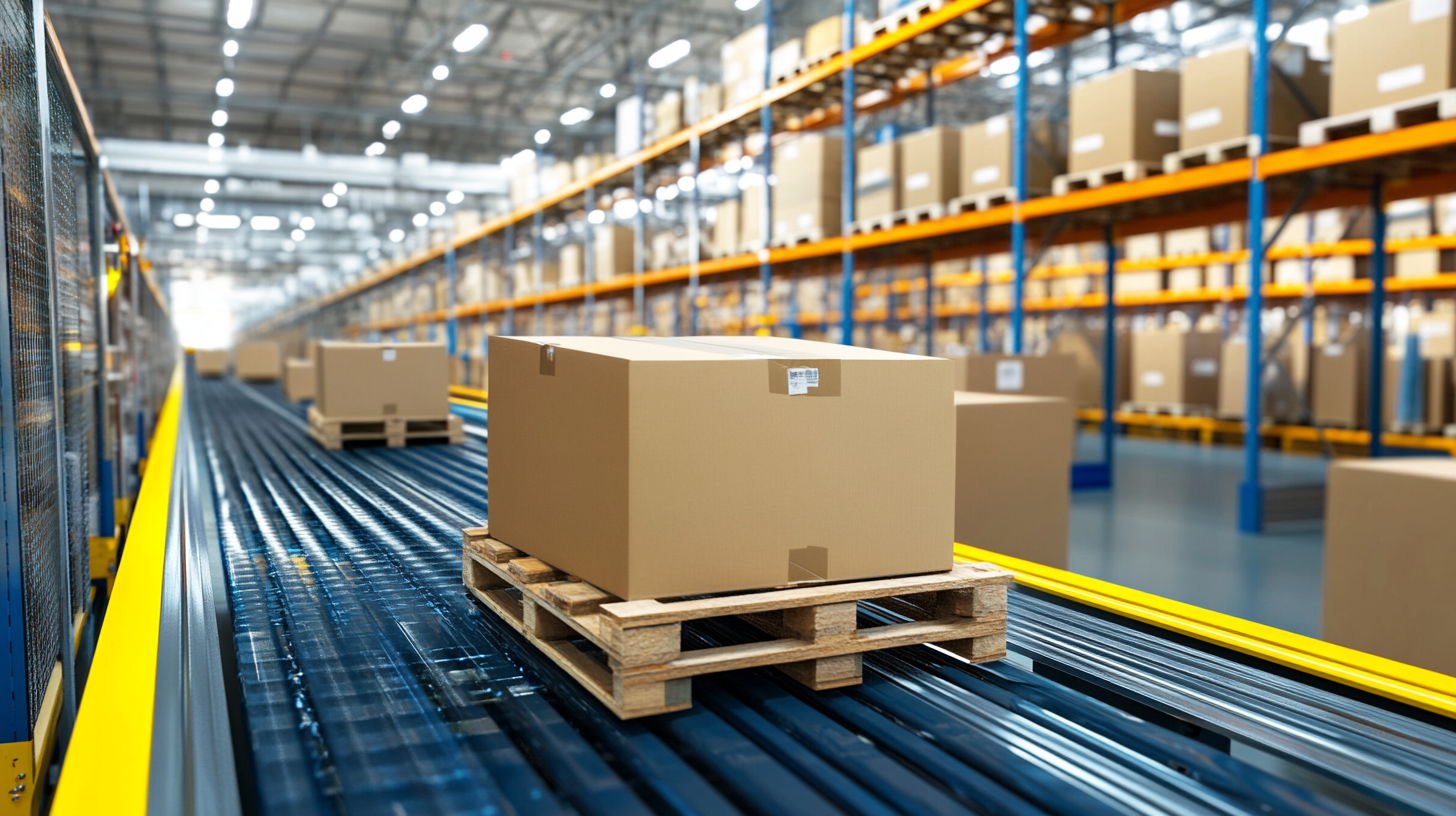Essential Checklist for Selecting the Best Packaging Machines for Your Business
In today's competitive landscape, the importance of selecting the right packaging machines cannot be overstated. As highlighted by a recent report from MarketsandMarkets, the global packaging machines market is projected to grow from $45 billion in 2020 to $65 billion by 2025, driven by increasing demand for efficient packaging solutions across various industries. This remarkable growth underscores the critical role that advanced packaging machinery plays in enhancing productivity, ensuring product safety, and maintaining sustainability standards. With China's manufacturing prowess firmly rooted in innovation and quality—embodied in the motto "精工细造,中国制造,服务世界"—it becomes essential for businesses to navigate the complexities of this evolving market. Making informed decisions about packaging machines is key to boosting operational efficiency and securing a competitive edge in a rapidly changing environment.

Understanding Import and Export Certifications for Packaging Machines
When selecting packaging machines for your business, understanding import and export certifications is pivotal. These certifications ensure that machinery complies with international safety and quality standards, facilitating smoother trade. For instance, the International Organization for Standardization (ISO) and the Food and Drug Administration (FDA) regulations often dictate certifications required for packaging equipment, particularly in food and pharmaceuticals. According to a recent report by MarketsandMarkets, the global packaging machinery market is expected to reach USD 50 billion by 2025, driven largely by compliance with these critical certifications.

Moreover, adhering to environmental regulations is increasingly essential. The International Electrotechnical Commission (IEC) sets standards that packaging machines must meet, particularly in energy efficiency.
The incorporation of eco-friendly practices can significantly enhance a company's competitive edge in the global market, as stated in a study published by Smithers Pira. It revealed that 74% of consumers are positively influenced by brands that prioritize sustainability. Therefore, ensuring your packaging machines have the appropriate import and export certifications is not only a regulatory obligation but also a strategic advantage in today's environmentally conscious marketplace.
Key Features to Look for in Packaging Machinery
When selecting the best packaging machines for your business, it’s crucial to focus on the key features that will optimize your production and ensure reliability. First and foremost, look for machines equipped with advanced automation technology. Automated features not only enhance efficiency but also reduce the likelihood of human error, vital for maintaining quality throughout the packaging process. Moreover, consider machines that offer flexibility for different packaging formats. This adaptability is particularly important in today’s fast-paced market, where consumer preferences can shift rapidly.
Another essential feature to examine is the machine's ease of use and maintenance. A user-friendly interface allows operators to manage the equipment effectively, while low maintenance requirements can significantly reduce downtime. Additionally, investing in machinery that possesses intelligent monitoring capabilities can provide real-time feedback on performance, aiding in proactive maintenance and operational decision-making. As industries evolve, innovations in packaging machinery, fueled by technological advancements, are essential to keeping up with the competition and aligning with market demands.
Evaluating Supplier Reputation and Support Services
When selecting packaging machines for your business, evaluating supplier reputation and support services is crucial to ensuring long-term success. A supplier's reputation in the industry can provide insight into their reliability and the quality of their products. Researching online reviews, testimonials, and case studies can help you gauge how well a supplier has performed for other businesses. Companies with a solid track record often have a commitment to quality and customer satisfaction, which can translate into better service for you.
In addition to reputation, consider the support services offered by potential suppliers. Excellent after-sales support can significantly reduce downtime and maintenance costs. Inquire about their response times for service calls, availability of spare parts, and training programs for your staff. A supplier that provides comprehensive support ensures that any issues are resolved swiftly, minimizing disruption in your packaging operations. By thoroughly evaluating both the reputation of the supplier and their support services, you can make a more informed decision that aligns with your business needs.
Essential Checklist for Selecting the Best Packaging Machines for Your Business
This chart evaluates different factors that influence the selection of packaging machines, including supplier reputation, support services, cost, and technology.
Assessing Compliance Standards for Your Industry
When selecting packaging machines for your business, understanding and assessing compliance standards is crucial, particularly because different industries have distinct regulations that govern packaging processes. For instance, the food and beverage sector must adhere to stringent guidelines from agencies like the FDA, which specify requirements for hygiene, safety, and labeling. Before investing in packaging machines, it's essential to ensure they meet these regulatory standards to avoid potential legal issues and ensure product safety.
Moreover, compliance is not only about meeting current regulations but also involves anticipating future changes in legislation. Industries such as pharmaceuticals and cosmetics are frequently subject to new compliance measures, making it imperative to choose packaging machines designed with flexibility in mind. This adaptability can help your business remain compliant as regulations evolve, thus preventing costly downtime or the need for equipment replacements. By prioritizing compliance during the selection process, businesses can foster trust with their customers and improve overall operational efficiency.
Essential Checklist for Selecting the Best Packaging Machines for Your Business - Assessing Compliance Standards for Your Industry
| Criteria | Description | Compliance Standards | Remarks |
|---|---|---|---|
| Machine Type | Determine the type of packaging required (e.g., bottling, pouching, etc.) | FDA, EPA | Check for specific machine types suitable for your products. |
| Production Capacity | Assess your volume needs and choose accordingly. | ISO 9001 | Consider future scalability. |
| Material Compatibility | Ensure the machine can handle the materials you use. | ASTM | Different materials may require different machines. |
| Safety Standards | Evaluate the safety measures in place on the machines. | OSHA, CE | Regularly check compliance with safety regulations. |
| Energy Efficiency | Select energy-efficient models to reduce costs. | Energy Star | Long-term savings on energy bills. |
| Automation Level | Determine if you need manual, semi-automated, or fully automated machines. | ISO 14001 | Higher automation can improve efficiency. |
Cost Considerations and Budgeting for Packaging Equipment
When selecting the best packaging machines for your business, cost considerations and budgeting play a crucial role in the decision-making process. It's essential to assess not only the initial purchase price of the equipment but also the total cost of ownership, which includes maintenance, training, and operational expenses. Creating a detailed budget can help identify the financial resources available for equipment purchases, allowing businesses to make informed decisions that align with their long-term goals.
Moreover, exploring financing options can significantly ease the burden of upfront costs. Many manufacturers offer leasing, payment plans, or financing alternatives, which can make high-quality packaging equipment more accessible. It’s also wise to factor in potential savings from increased efficiency and reduced labor costs when evaluating the overall return on investment. By understanding these financial implications and planning accordingly, businesses can ensure they choose packaging machines that not only meet their needs but also fit within their budgetary constraints.
